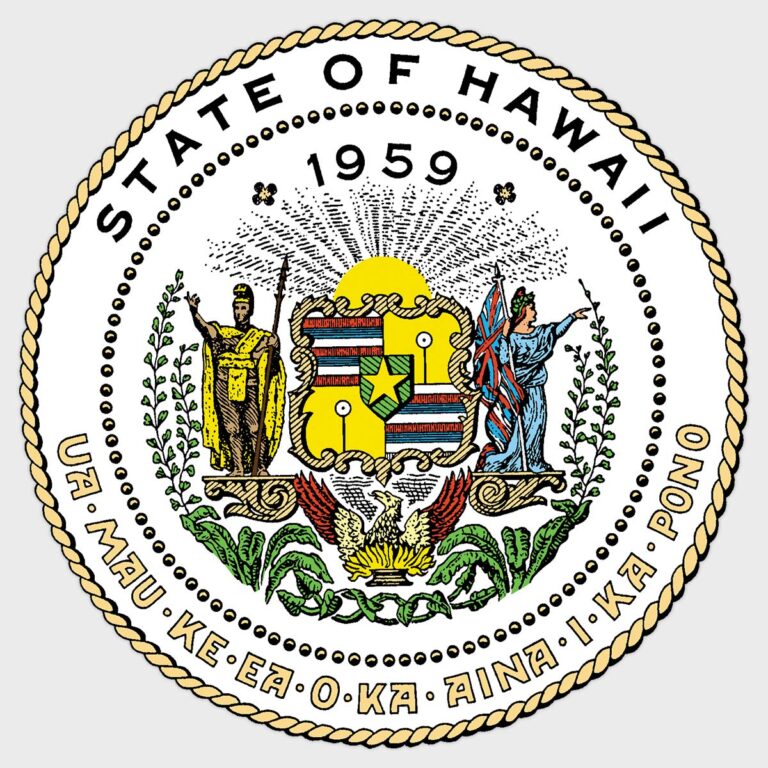Department of Health Expands 'Stronger Together' Campaign to Expose Tobacco Industry Targeting Marketing to Hawaii Youth
Posted: February 20, 2024, Newsroom
HONOLULU – The tobacco industry spends an estimated $22 million each year on marketing in Hawaii, resulting in $611 million in annual health care costs for the state, $1.1 billion in lost productivity, and $1.9 billion in state and federal taxes. The cost is nearly $1,000 per household.[1] To combat the youth e-cigarette epidemic, the Hawaii Department of Health (DOH) and the Hawaii Public Health Institute (HIPHI) recently relaunched the “Stronger Together” campaign. Since 2022, the campaign has called attention to tobacco companies' strategies targeting Hawaii's youth. The extension comes in response to recent efforts among counties to regain authority to regulate the sale of tobacco products within their communities.
“Today is a great day, but the fight is not over,” Hawaii County Councilwoman Susan Lee Roy said on January 10, 2024, when Bill 102, banning flavored e-cigarette products, was passed on the Big Island. Told. “We still need the Legislature to take action and restore authority to our counties. Today, we will show Congress that our counties are ready to listen to local needs and protect our communities.” I did.”

E-cigarettes disproportionately impact counties across the state. The data highlights that the brunt of the youth e-cigarette epidemic is falling on the shoulders of counties. Approximately 16% of high school students on Kauai, 18% on Maui, 22% in Hawaii County, and 13% in Honolulu County report currently vaping.[2] Among middle school students, nearly 1 in 10 students in Hawaii, Maui, and Kauai counties currently use e-cigarettes, and approximately 1 in 20 students in Honolulu County use e-cigarettes.[3]
Historically, Hawaii counties have been pioneers in passing policies regulating tobacco products. In 2014, Hawaii County became one of the first jurisdictions in the nation to raise the age for sale of tobacco products to 21. All four counties passed policies banning smoking in parks and beaches before becoming state law. In response, Big Tobacco's strategy has been to target special interests at the state level. The county's authority to regulate the sale of tobacco products was removed by a 2018 law. However, several bills have been proposed for the 2024 legislative session, including HB1778, which would return county authority and authorize appropriate measures to protect tobacco products. local needs.
Big Tobacco has capitalized on the social impact of e-cigarettes among teens and younger age groups through targeted marketing and ongoing messaging. One study states that the most common reason teens start vaping is for friends and socializing.[4]Advertising and marketing through social media is often done to capitalize on the variety of creative designs and flavors as well as social benefits such as increased friendships.[5] Growing evidence reveals that young people are indeed the target market for e-cigarette advertising, despite tobacco companies denying the data.
“My cousins are in middle school and elementary school,” says Zoe, a student at Kamehameha Schools. “They are surrounded by horrible drugs in a place where they are trying to learn the difference between good and evil. It's so common that we don't know what to think anymore. They are drowning in a sea full of addicted friends, and we want them back.”
Concerned by the continued problem with youth vaping and growing data that nicotine negatively impacts brain development, DOH and HIPHI are relaunching the Stronger Together campaign to encourage people who want to quit tobacco addiction We encourage continued efforts to serve our customers. . The Stronger Together campaign identifies those targeted by the tobacco industry and advocates for collective community action through the motto, “Together, we are stronger than Big Tobacco.”
The public can visit the campaign website StrongerTogether.hawaii.gov to learn more about the tobacco industry's targeted marketing strategies, connect with local tobacco-free coalitions, stay informed, and get involved. is recommended.
For those already addicted to tobacco products, the Hawaii Tobacco Quit Line offers free coaching and resources to support your quit journey. Call 1-800-QUIT-NOW or register online at hawaiiquitline.org. My Life, My Quit is a free program with coaches trained to help youth quit smoking and vaping. Teens can sign up by texting “Start my Quit” to 36072 or calling 855-891-9989.
###
[1] Tobacco damage in Hawaii`I. Campaign for non-smoking kids. (November 21, 2023). https://www.tobaccofreekids.org/problem/toll-us/hawaii
2 Health, D. (April 14, 2023). Hawaii Youth Risk Behavior Survey (YRBS) Data Query Results – Electronic Vapor Products – Current Usage, High School, and County Levels. Hawaii IBIS – Query Results – Hawaii Youth Risk Behavior Survey (YRBS) Data – Electronic Vapor Products – Current Use, High School, County Level. https://hhdw.org/report/query/result/yrbs/VaporCurr/VaporCurr_HS_CNTY.html
3 Health, D. (April 14, 2023). Hawaii Youth Risk Behavior Survey (YRBS) Data Query Results – Electronic Vapor Products – Current Usage, Middle School, and County Levels. Hawaii IBIS – Query Results – Hawaii Youth Risk Behavior Survey (YRBS) Data – Electronic Vapor Products – Current Use, Middle School, County Level. https://hhdw.org/report/query/result/yrbs/VaporCurr/VaporCurr_MS_CNTY.html
4 Groom, A. L., Vu, T. T., Landry, R. L., Kesh, A., Hart, J. L., Walker, K. L., Wood, L. A., Robertson, RM, and Payne, T. J. (2021). Friends' influence on teen e-cigarettes: A mixed-methods approach. International Journal of Environmental Research and Public Health, 18(13), 6784. https://doi.org/10.3390/ijerph18136784
5 Struik, L.L., Dow-Fleisner, S., Belliveau, M., Thompson, D., and Janke, R. (2020). Tactics to attract young people to vaping: A content analysis of e-cigarette advertisements. Medical Internet Research Journal, twenty two(8), e18943. https://doi.org/10.2196/18943


